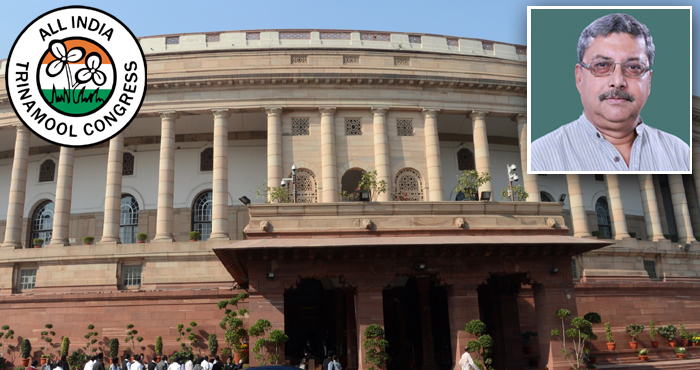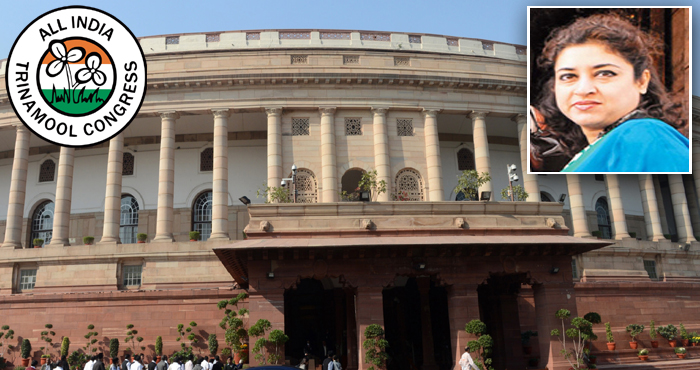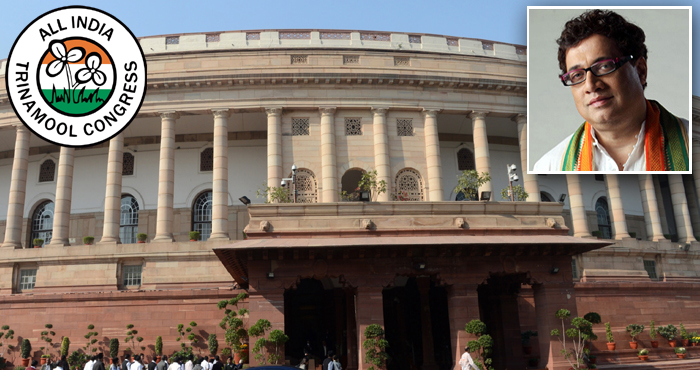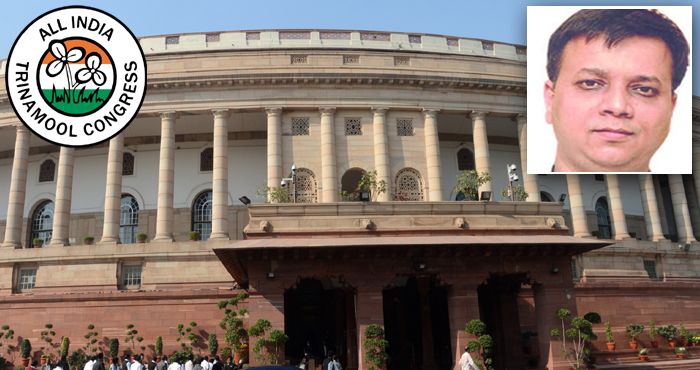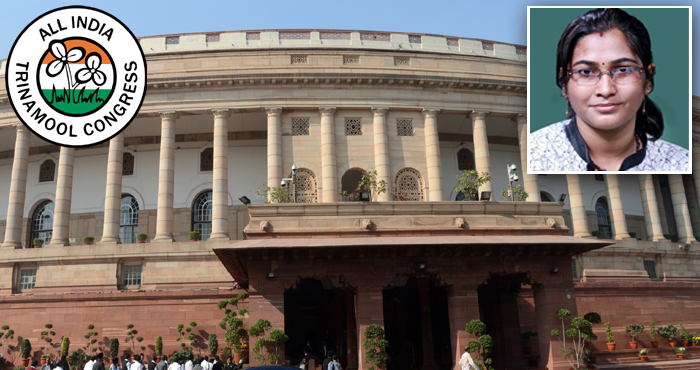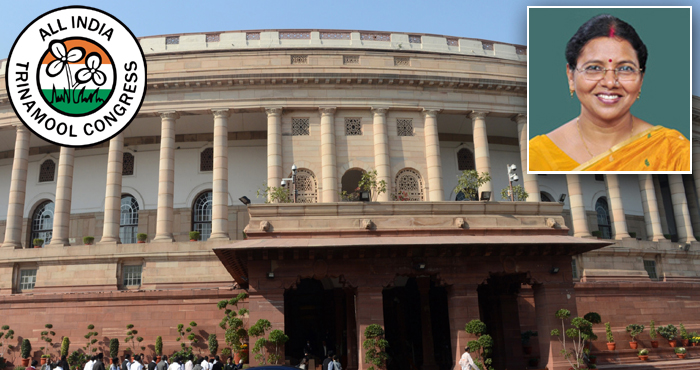Deputy Chairman Sir, aap ka bahut bahut dhanyavad ki aaj aap ne mauka diya iss Bill pe bolne ke liye. Sir, main thora sa samay lunga, thora sa indulgence chahunga, ki aaj iss Bill par humlog kyun bol rahe hain. Aisi kya samasya hain jo humlog address karna chah rahe hain?
Sir, 76,300 cases pending pare huye hain May 2016 tak. Karib karib 2 lakh rupiya bank-o ka phansa hua hain court cases mein. Aur bade corporate jo hote hain, jo bade corporate ka naam sunta hoon, unki ek ek case mein lagbhag 500 hearings hoti hain aur uske karan poora process delay hota hain. Issi sab cheez-o ko shayad humlog address karna chah rahe hain is Bill mein, jahan tak mujhe samajh mein aaya hain.
Aur iske elawa shayad, jo hamare Mananiya Vitta Mantri ne kaha tha pichle Session mein, jab Insolvency Act pass hua tha, ki yeh charon Act aayenge – so this is enabling a continuous legislation. Aur ek aur problem bataya gaya tha, jo recovery officer judicial authorities mein kaam karte, unke training kam hain.
Sir, mujhe samajh mein nahin aa raha ki problem yeh thi lekin solution kuch aur dikhaya gaya hain. Main chahunga kabhi Vitta Mantri hum logo ko bhi samjha de apni bhashan mein, jab woh karna chahein.
Mein quote karna chahunga sabse pehle: ‘The DRT will become the country’s first online court.’ Sir, yahaan par gaon mein bijli nahin hain, internet nahin hain, aur humlog online online kar rahe hain. Un logon ke bare mein bhi sochna chahiye jinke paas bijli ya internet nahin hain. Mujhe woh is Bill mein kahin nahin mila. Un logon ke bare mein nahin bhulna chahiye kyunki different karne wala jo hota hai unko hamesha victim kaha jata hain.
DRT mein jo jane wala hain woh garib aadmi hain, kyun ki ek bada bank jab garib aadmi par attack karta hain, usi ke liye mein bolna chah raha hoon. Woh toh bank ke paas online suvidha hain, DRT ke paas online suvidha hain, jo victim jayega unke paas online suvidha hain.
Sir, doosra jo problem hain, banks directly guaranters pe chale jate hain, borrowers ko chor dete hain. Banks ko jo selective powers milta hain, is par socha jana chahiye. Sir, banks ko private businesses ke bare mein bhi khayal rehna chahiye. Jisko cheques milta hain banks se ya kisi sarkari sanstha se, jo cheques bounce hota hain, jo 3 crore cases pending hain usme kitne cheque bouncing cases hain uske bare mein koi nivaran nahin hain. Finance Minister Ji ne kaha tha jab Insolvency Act paas hua tha, ki yeh cheque bouncing aur negotiable instruments ke bare mein bhi amendments layenge ki logon ko rahat mil sake jinke cheque bouncing cases hain, woh bhi nahin.
Sir, yeh samajh mein aaya ki asset reconstruction companies (ARC) ko bahut space diya gaya hain iss Bill mein. Coincidence hain jaise hi FDI unme 100% kiya giya hain, job hi uske maange hain Bill mein kar diya giya hain. ARC zaroori hain, desh mein pragati honi chahiye, hum uske khilaf nahin hain. Magar Sir, hum ek cheez chahte hain.
Hamari sari State Governments mein debt ki itni problem hain, thora unke bare mein bhi sochiye, ki unka karz kaise thik ho sakta hain. Hamare West Bengal Government jo hain, 3 lakh crore ke karz se guzar raha hain. Banks ka halka sa NPA hota hain, unko aap recapitalise kar dete hain, Bill modify karne le aate, thora sa States ke bare mein bhi sochiye. States bhi aap ki hain. Banks toh paisa kamane ke liye hain. States toh development ka kaam kar kar rahin hain. States ka saath aap ka 100% relation hain, banks ke saath phir bhi toh 50% rishtedari hain. Toh States ko jab takleef hota hain, toh States ko kyun nahin dhyan dete hain aap debt ke upar mein? Kyun nahin aap thora sa madat karte hain – kyun nahin unko re-capitalise karte, unko madat karte? Sir, iska jawab mein Vitta Mantri se aap ke madhyam se chahunga. Sir, States ka sara kharcha development mein hoti hain. Banks audyogic growth karte hain, States development aur social growth karti hain, iske bare main sochna chahiye.
Sir, hamare Vitta Mantri Ji ka ek qur quote yahan karna chahunga, jo unhone sadan mein diya tha kuch din pehle: “States have to solve their own problems because of some previous problems they had.” Sur, States cannot solve their own problems. Aap ek taraf baat karoge cooperative federalism, federal structure, constitution ki. Sir, kya humlog yeh man le Jaitley Ji ke bhashan ke baad ki yeh one-way federalism hone wala hain? This is failed federalism. Yeh kaun sa federalism hain? Sir, yeh spirit of federalism mein ek tarah ka bhashan toh nahin hona chahiye ki States apni samasyaon ka samadhan khud kare. Agar Central Government aisi tarah pallah jhar degi State Governemnts se, tab toh ho giya federalism. Sir, mujhe toh kabhi kabhar yeh lagte hain yeh sab neeti-o ko dekh kar ki yeh camouflaged centralism na ho.
Sir, yeh jo banks ko jo powers de rahi hain, yeh debt recovery tribunals yeh sab, banks ke saath hum jab deal karte hain, ek banking ombudsman hote hain. Mujhe lagta hain DRT ka bhi ek ombudsman hona chahiye kyunki bahut bar dekha giya hain ki banks apne records ko thik nahin karte. Sir, recently case aaya hain Kolkata mein, High Court mein pending hain, jahan bank ne ek property nilam ke liye nikali, uska inspection nahin karaya, usko nilam kar kar diya. Baad mein pata chala ki paisa bank ke paas aaya hua tha. Sir, is tarah ke mamle aur bhi ho sakte hain, safeguards iss Bill mein kahan hain, yeh hume nahin mila, yeh Vitta Mantri ko aapke madhyam se hume bataye.
Sir, kuch sujhav hain, ki DRTs badaya jaye, appellate tribunals badaya jaye, un mein jo vacancies hain unko aap bhariye, aur inki pehle proper training karaiye. Aur Sir, issi tarah, jo karz lene wala hain, uske bare mein bhi sochiye, unko bhi vichar-vimarsh ke liye bulaiye, unki bhi genuine wishes hain. Unko sab on board le ke yeh kaam kariye.
Thank you, Sir.

